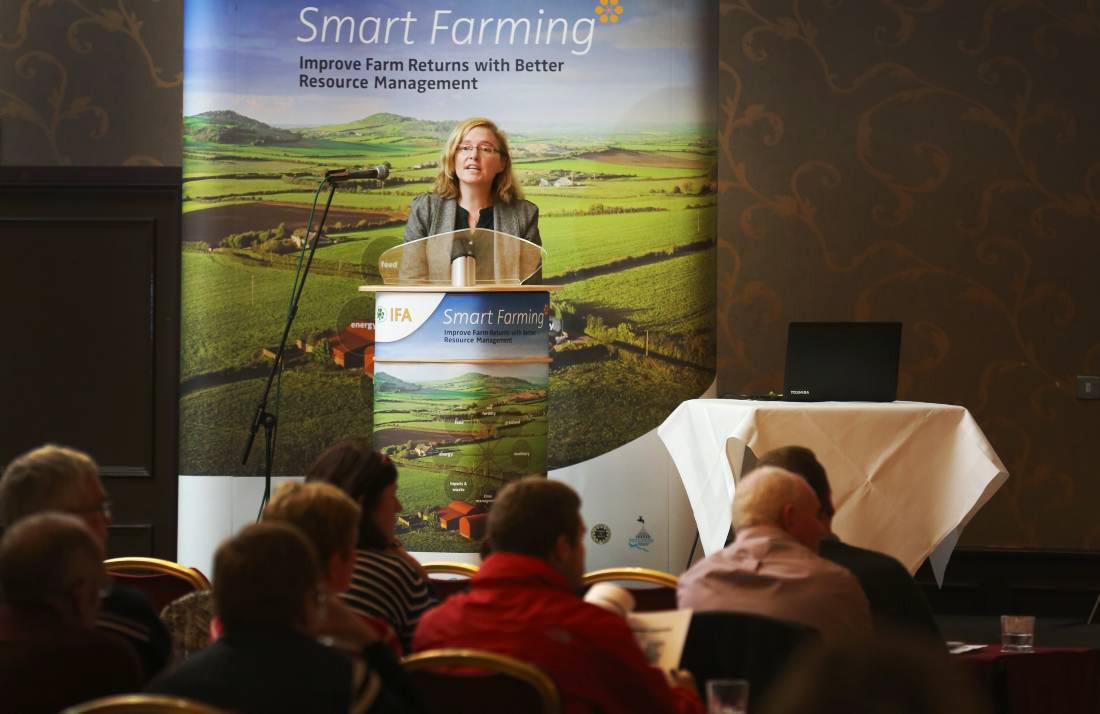Each year farmers spend over €500m on diesel fuel, electricity and other energy sources. Eileen O’Leary from the Clean Technology Centre in Cork Institute of Technology
outlines some ways that energy costs
can be reduced on the farm
There are two significant ways to reduce electricity bills:
Try to use less. Try to pay less for what is used. Electricity bills
The first thing you need to do is to put together your electricity bills from the past year and work out how much you actually spent on electricity and the rate per unit you were being charged.
Once you know this you should then log on to www.bonkers.ie or www.uswitch.ie which will compare your existing charges with the best rates available. About 25,000 customers in Ireland change electricity provider every month.
However, it’s important to remember that offers such as those provided by IFA Member Services are not on these websites – so make sure you check all options.
Some examples of electricity savings identified on farms that took part in the Smart Farming initiative this year include:
Suckler farmer: annual savings of €250. Dairy farmer: annual savings of €1,600. All farms that use more than 20% of their daily electricity requirements between 12am and 9am in the summer time and 11pm and 8am in the winter time should consider installing night-rate electricity.
There are slightly higher day unit rates and standing charges.
However, these additional charges are compensated for by the much lower electricity rate at night, which is often half the day-rate charge. The night-saver meters are usually installed for free.
A significant finding of the Smart Farming cost-saving studies is that not all dairy farmers are using night-rate electricity.
This does not make sense and farmers are wasting money here.
Bright ideas: Lighting around the farmyard
Every farmyard and farm building has some form of lighting. Set out below are some alternatives to the conventional lights we normally buy, which may cost more initially but are expected to last much longer than the conventional lights.
The farmhouse
Typically farm families will spend an average of €1,750 each year on electricity in the home and a further €1,750 on fuel for heating and hot water. This is a substantial cost which can be reduced by doing things such as insulating the house well. Grant aid for energy-saving measures in the home is available from the Sustainable Energy Authority of Ireland where new insulation, boilers and solar water heating systems are installed. The table opposite provides a summary of the potential savings, costs and grant aid available. For more information, see www.seai.ie.
Each year farmers spend over €500m on diesel fuel, electricity and other energy sources. Eileen O’Leary from the Clean Technology Centre in Cork Institute of Technology
outlines some ways that energy costs
can be reduced on the farm
There are two significant ways to reduce electricity bills:
Try to use less. Try to pay less for what is used. Electricity bills
The first thing you need to do is to put together your electricity bills from the past year and work out how much you actually spent on electricity and the rate per unit you were being charged.
Once you know this you should then log on to www.bonkers.ie or www.uswitch.ie which will compare your existing charges with the best rates available. About 25,000 customers in Ireland change electricity provider every month.
However, it’s important to remember that offers such as those provided by IFA Member Services are not on these websites – so make sure you check all options.
Some examples of electricity savings identified on farms that took part in the Smart Farming initiative this year include:
Suckler farmer: annual savings of €250. Dairy farmer: annual savings of €1,600. All farms that use more than 20% of their daily electricity requirements between 12am and 9am in the summer time and 11pm and 8am in the winter time should consider installing night-rate electricity.
There are slightly higher day unit rates and standing charges.
However, these additional charges are compensated for by the much lower electricity rate at night, which is often half the day-rate charge. The night-saver meters are usually installed for free.
A significant finding of the Smart Farming cost-saving studies is that not all dairy farmers are using night-rate electricity.
This does not make sense and farmers are wasting money here.
Bright ideas: Lighting around the farmyard
Every farmyard and farm building has some form of lighting. Set out below are some alternatives to the conventional lights we normally buy, which may cost more initially but are expected to last much longer than the conventional lights.
The farmhouse
Typically farm families will spend an average of €1,750 each year on electricity in the home and a further €1,750 on fuel for heating and hot water. This is a substantial cost which can be reduced by doing things such as insulating the house well. Grant aid for energy-saving measures in the home is available from the Sustainable Energy Authority of Ireland where new insulation, boilers and solar water heating systems are installed. The table opposite provides a summary of the potential savings, costs and grant aid available. For more information, see www.seai.ie.






 This is a subscriber-only article
This is a subscriber-only article





SHARING OPTIONS: